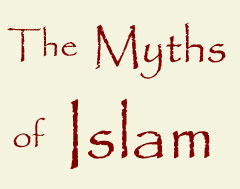
Bahá’í Faith
The Bahá’í Faith has noteworthy representation in Iran, United Arab Emirates, Palestine, and Turkey. Its international headquarters are located on the northern slope of Mount Carmel at Haifa, Israel. Founded in Iran in 1863, the Bahá’í Faith is one of the youngest world major religions. According to most encyclopedias, in the early 21st century there are an estimated six to eight million Bahá’ís across the globe.
The Bahá’í Faith is a monotheistic religion which emphasizes the spiritual unity of all humankind. Three core principles establish a basis for Bahá’í teachings and doctrine: the unity of God, that there is only one God who is the source of all creation; the unity of religion, that all major religions have the same spiritual source and come from the same God; and the unity of humanity, that all humans have been created equal, coupled with the unity in diversity, that diversity of race and culture are seen as worthy of appreciation and acceptance. According to the Bahá’í Faith’s teachings, the human purpose is to learn to know and to love God through such methods as prayer, reflection and being of service to humanity.
The Bahá’í Faith was founded by Bahá’u’lláh in 19th-century Persia. Bahá’u’lláh was exiled for his teachings from Persia to the Ottoman Empire and died while officially still a prisoner. After Bahá’u’lláh’s death, under the leadership of his son, `Abdu’l-Bahá, the religion spread from its Persian and Ottoman roots, and gained a footing in Europe and America, and was consolidated in Iran, it suffers intense persecution. After the death of `Abdu’l-Bahá, the leadership of the Bahá’í community entered a new phase, evolving from a single individual to an administrative order with both elected bodies and appointed individuals. There are more than five million Bahá’ís around the world in more than 200 countries and territories.
In the Bahá’í Faith, religious history is seen to have unfolded through a series of divine messengers, each of whom established a religion that was suited to the needs of the time and to the capacity of the people. These messengers have included Abrahamic figures—Moses, Jesus, Muhammad, as well as figures from Indian religions like Krishna, Buddha, and others. For Bahá’ís, the most recent messengers are the Báb and Bahá’u’lláh. In Bahá’í belief, each consecutive messenger prophesied of messengers to follow, and Bahá’u’lláh’s life and teachings fulfilled the end-time promises of previous scriptures. Humanity is understood to be in a process of collective evolution, and the need of the present time is for the gradual establishment of peace, justice and unity on a global scale.
Etymology
The word Bahá’í is used either as an adjective to refer to the Bahá’í Faith or as a term for a follower of Bahá’u’lláh. The word is not a noun meaning the religion as a whole. It is derived from the Arabic Bahá’, meaning “glory” or “splendor.” The term “Bahaism” (or “Baha’ism”) is still used, mainly in a pejorative sense.
Beliefs
Three core principles establish a basis for Bahá’í teachings and doctrine: the unity of God, the unity of religion, and the unity of humanity. From these postulates stems the belief that God periodically reveals his will through divine messengers, whose purpose is to transform the character of humankind and to develop, within those who respond, moral and spiritual qualities. Religion is thus seen as orderly, unified, and progressive from age to age.
God
The Bahá’í writings describe a single, personal, inaccessible, omniscient, omnipresent, imperishable, and almighty God who is the creator of all things in the universe. The existence of God and the universe is thought to be eternal, without a beginning or end. Though inaccessible directly, God is nevertheless seen as conscious of creation, with a will and purpose that is expressed through messengers termed Manifestations of God.
Bahá’í teachings state that God is too great for humans to fully comprehend, or to create a complete and accurate image of, by themselves. Therefore, human understanding of God is achieved through his revelations via his Manifestations. In the Bahá’í religion, God is often referred to by titles and attributes (for example, the All-Powerful, or the All-Loving), and there is a substantial emphasis on monotheism; such doctrines as the Trinity are seen as compromising, if not contradicting, the Bahá’í view that God is single and has no equal. The Bahá’í teachings state that the attributes which are applied to God are used to translate Godliness into human terms and also to help individuals concentrate on their own attributes in worshipping God to develop their potentialities on their spiritual path. According to the Bahá’í teachings the human purpose is to learn to know and love God through such methods as prayer, reflection, and being of service to others.
Bahá’í Faith
513 – 003
https://discerning-Islam.org
Last Update: 04/2021




